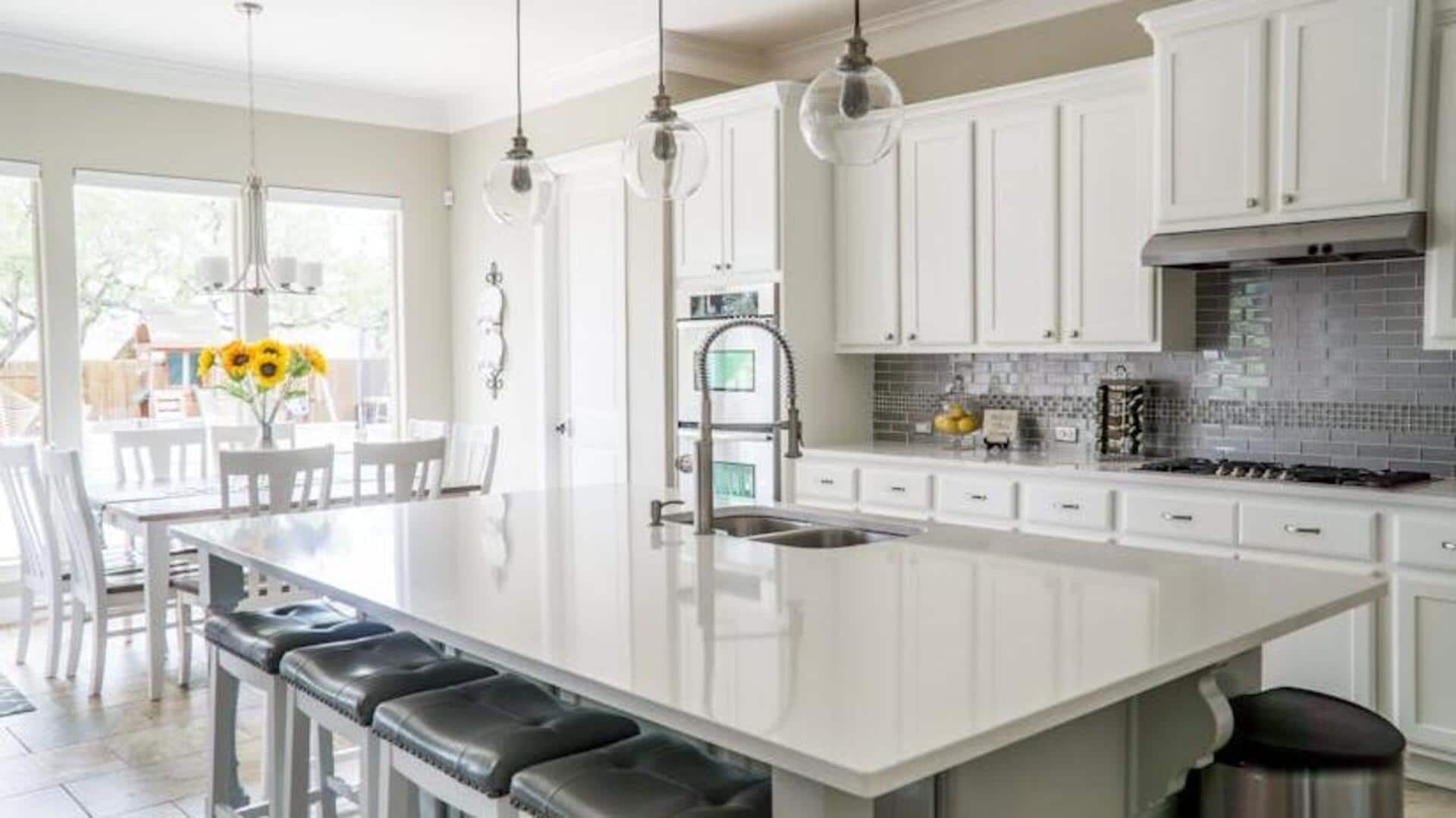
The dos and don'ts of using a shared community kitchen
What's the story
Shared community kitchens are melting pots (pun intended!) of diverse cultures, where individuals from various walks of life come together to prepare meals.
These kitchens are commonplace in hostels, shared apartments, and community centers.
However, maintaining harmony and cleanliness in these shared spaces requires adherence to a set of unwritten rules or etiquette.
In this article, we delve into the essential etiquette tips for navigating shared community kitchens with ease.
Cleaning up
Clean as you go
One golden rule in shared kitchens is to clean as you go.
This means washing your dishes, utensils, and cookware promptly after you're done using them.
Leaving dirty items around can be a hassle for others who need to use the space.
Plus, wiping down countertops and stovetops after cooking helps keep things clean and prevents the buildup of grease and food particles.
Food storage
Label your food
In a shared kitchen, it's essential to label your food items before placing them in the refrigerator or pantry.
Grab a marker or label maker and write your name and the date on each container.
This simple habit eliminates confusion about who owns what and fosters a sense of respect for everyone's belongings.
Plus, it minimizes the chances of someone mistakenly eating your delicious leftovers!
Scheduling
Respect others' time
Shared kitchens need time etiquette. Don't hog during busy hours.
If you have a big meal to prep, choose a quiet time or let your housemates know.
This way, everyone gets a fair shot at the kitchen, and tensions are less likely to rise.
It keeps things peaceful and ensures everyone can enjoy their shared living experience.
Sharing essentials
Share basic supplies
Although personal ingredients should remain separate, sharing staple items like salt, pepper, cooking oil, and cleaning supplies can create a sense of community among users.
Setting up a communal fund where each member contributes a small amount monthly can cover the cost of these essentials.
Sharing not only cuts costs but also reduces clutter in the kitchen by eliminating the need for duplicate items.
Communication
Communicate openly
Honest communication is crucial in addressing shared space concerns.
Instead of resorting to passive-aggressive notes if someone leaves a mess or misuses the kitchen, it's more productive to have a direct conversation with the person involved.
Scheduling regular meetings with everyone using the space can also be beneficial.
This way, everyone can voice their concerns and improvements can be suggested as a team.